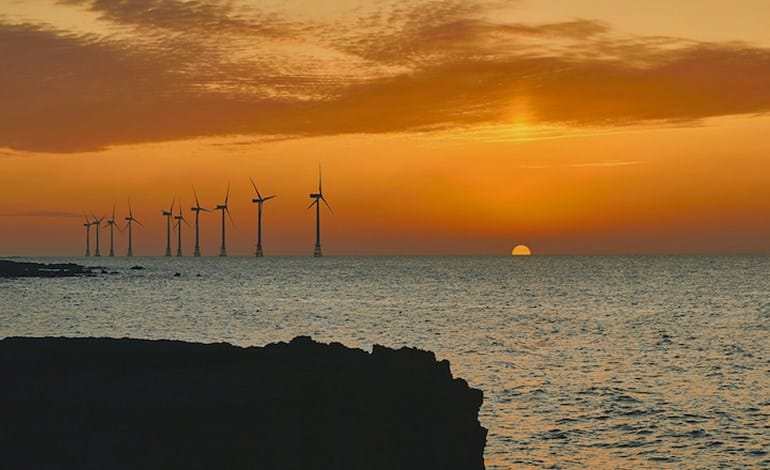
Copenhagen Offshore Partners (COP) has announced a significant milestone in the development of the 96MW Jeonnam 1 Offshore Wind Project in Korea. The project has achieved first power, marking a crucial step towards Korea’s energy independence and net-zero goals. COP, in partnership with CIP (Copenhagen Infrastructure Partners) and SK Innovation E&S, has been instrumental in driving the development of the Jeonnam 1 project. As the exclusive offshore wind development partner for CIP, COP has led the project from inception to construction, working closely with local communities and stakeholders to ensure its successful implementation. Construction on Jeonnam 1 commenced in early 2023, with turbine installation beginning in September 2024. The project is expected to reach full commercial operation in the first quarter of 2025, generating clean energy for approximately 60,000 households. Jesper Krarup Holst, COP Partner, Head of APAC, and Chief Operating Officer of the Jeonnam 1, 2, and 3 portfolio, expressed his satisfaction with the project’s progress and thanked the team for their hard work and dedication. COP is actively involved in developing a multi-gigawatt offshore wind portfolio in Korea, including the Jeonnam 2 and Jeonnam 3 projects, as well as the 1.5 GW Haewoori floating offshore wind project. These…
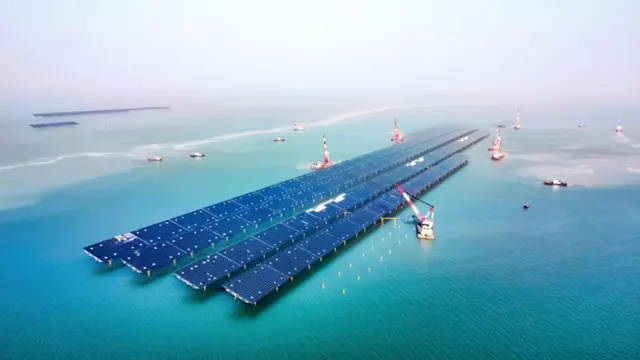
China Energy Investment Corp (CHN Energy) has made significant strides in its renewable energy initiatives, successfully connecting a 3-GW solar power plant and a 1-GW offshore photovoltaic park to the Chinese grid. The 3-GW Mengxi Blue Ocean Photovoltaic Power Station, built on a former coal mining site in Inner Mongolia, is now fully operational. This massive solar power plant, comprising 5.9 million solar panels, is expected to generate 5.7 billion kWh of clean electricity annually, powering approximately 2 million households. By utilizing a previously mined area, the project demonstrates a commitment to sustainable development and land reclamation. In another groundbreaking achievement, CHN Energy has switched on the first batch of photovoltaic units at a 1-GW offshore solar park in Kenli District, eastern China. This pioneering project, the world’s largest offshore solar plant, covers an area of approximately 1,223 hectares and will generate 1.78 billion kWh of clean electricity annually. Both projects are expected to significantly reduce carbon emissions and contribute to China’s renewable energy goals. By harnessing the power of solar energy, CHN Energy is leading the way in the transition to a low-carbon future.
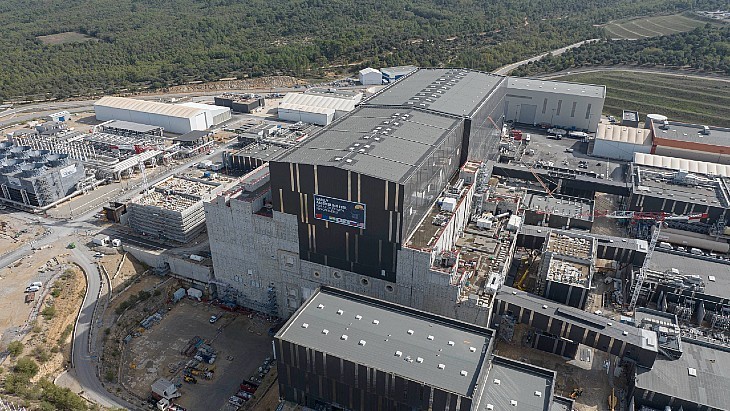
Fusion for Energy (F4E), the European organization managing Europe’s contribution to the ITER project, has secured a significant contract with the b.NEXT consortium. This collaboration extends the successful partnership between F4E and the consortium, leveraging their expertise in delivering key infrastructure for the world’s largest fusion experiment. The ITER project aims to demonstrate the feasibility of fusion as a clean and limitless energy source by building a tokamak fusion device. F4E plays a crucial role by contributing nearly half the project’s construction cost and overseeing the delivery of crucial infrastructure. The new contract, expected to run until 2030 with the possibility of extension, builds on the consortium’s previous successful collaboration. It utilizes their proven track record in engineering, project management, and the application of cutting-edge digital technologies for automation. Under this agreement, b.NEXT will provide a range of services, including consulting, design, nuclear safety management, construction support, and project management. This comprehensive approach ensures the successful completion of civil and mechanical works at the ITER construction site. This continued partnership is an example of successful international collaboration. With thirty-three nations contributing to ITER, F4E’s collaboration with b.NEXT demonstrates Europe’s commitment to the project’s success. The involvement of the consortium in…

Neoen, a leading global independent renewable energy producer, has announced that it has been awarded seven new solar and agrisolar projects totaling 164 MWp in France’s latest tender. This significant win solidifies Neoen’s position as a major player in the French renewable energy market. With this latest success, Neoen has secured a total of over 2.5 GW of capacity in France. The newly awarded projects are expected to be commissioned between 2026 and 2029, with one project, Tourneuve, scheduled for 2032 due to necessary grid upgrades. Neoen’s commitment to sustainable development is evident in its focus on agrisolar projects, which combine solar energy generation with agricultural activities. Four of the seven projects awarded are agrivoltaic sites, demonstrating the company’s dedication to innovative solutions that maximize land use and minimize environmental impact. By working closely with local communities and authorities, Neoen ensures that its projects are well-integrated into the local landscape and contribute to the region’s economic and environmental goals. This latest achievement underscores Neoen’s strong track record in developing and operating renewable energy projects. The company remains committed to driving the transition to a low-carbon future and delivering sustainable energy solutions. Over half of Neoen’s solar projects in France features…

The U.S. Department of Energy (DOE) has announced the allocation of $149.9 million to 67 energy conservation and clean energy projects across various federal facilities. This funding, provided through the Assisting Federal Facilities with Energy Conservation Technologies (AFFECT) program, will enable the deployment of innovative technologies such as solar photovoltaic systems, wind power, geothermal energy, battery storage, microgrids, and building automation systems. The AFFECT program, authorized by the Bipartisan Infrastructure Law, aims to accelerate the federal government’s transition to clean energy and achieve its net-zero emissions goals. By investing in energy efficiency and renewable energy projects, the DOE seeks to reduce energy consumption, lower greenhouse gas emissions, and improve the overall sustainability of federal facilities. The awarded projects will deliver significant environmental and economic benefits, including reduced energy costs, decreased carbon emissions, and increased energy resilience. These projects will also contribute to the Biden Administration’s goal of building a clean energy economy and creating jobs. The DOE’s commitment to supporting energy efficiency and clean energy initiatives aligns with the nation’s broader climate goals. By investing in these projects, the agency is leading by example and demonstrating the potential for significant energy savings and emissions reductions across the federal government.

Dubai Airports has announced a significant step towards a more sustainable future with the launch of the world’s largest rooftop solar panel installation project at its airports. In partnership with Etihad Clean Energy Development Company, a subsidiary of DEWA, Dubai Airports aims to install 62,904 solar panels across Dubai International (DXB) and Dubai World Central (DWC) airports. This ambitious project, expected to be fully operational by 2026, will generate 60,346 MWh annually. By harnessing solar power, Dubai Airports seeks to significantly reduce its carbon footprint and contribute to Dubai’s broader sustainability goals. The solar panels are estimated to offset 23,000 tonnes of CO2 emissions per year, equivalent to removing 5,000 cars from the road or powering 3,000 homes annually. Saeed Mohammed Al Tayer, Managing Director and CEO of DEWA, emphasized Dubai’s commitment to clean energy and sustainable development. He highlighted the accelerated efforts to achieve the target of 25% clean energy in the energy mix by 2030 and 100% by 2050. Paul Griffiths, CEO of Dubai Airports, underscored the importance of sustainability in the aviation industry. He stated that this initiative is not just about installing solar panels but about embedding sustainability into the core operations of Dubai Airports. Dr….
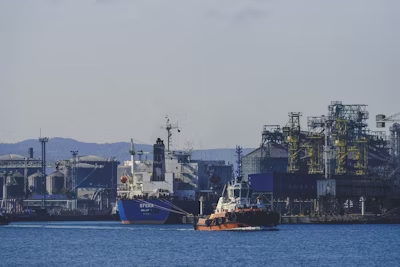
Russia has made significant strides in its Arctic ambitions with the launch of the Chukotka, the fifth nuclear-powered icebreaker in its Project 22220 series. The ceremony, presided over by Russian President Vladimir Putin, took place at the Baltic Shipyard. The Chukotka, a 173-meter-long vessel capable of breaking ice up to three meters thick, will join the ranks of the Artika, Sibir, Ural, and Yakutia, which are already operational in the Northern Sea Route. The project aims to enhance Russia’s presence in the Arctic and facilitate year-round navigation in the region. President Putin emphasized the importance of the project, stating, “Our entire domestic economy should be built on our own technologies and groundbreaking scientific solutions.” He further highlighted the strategic significance of the Northern Sea Route, emphasizing the need to improve navigation safety and reliability. The launch of the Chukotka marks a significant milestone for Russia’s Arctic development. The vessel will play a crucial role in supporting economic activities in the region, including shipping, resource extraction, and scientific research.
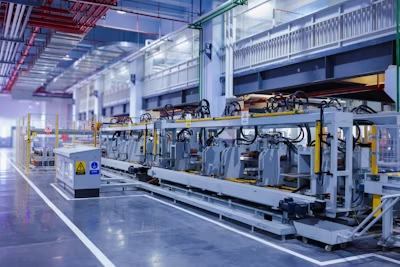
ACWA Power, a leading global player in the power and water desalination sectors, has announced a 16% increase in net profit for the first nine months of 2024. The company’s strong financial performance is driven by robust operational performance and strategic investments. During the period, ACWA Power achieved a net profit of SR1.25 billion ($334 million), fueled by a 12.5% increase in operating income to SR2.36 billion. The company’s growth was primarily driven by an investment gain from project restructuring and capital recycling. ACWA Power’s CEO, Marco Arcelli, highlighted the company’s commitment to growth, noting that its portfolio now includes 26 projects — the largest in its 20-year history. “These projects reflect both the speed at which we are realizing our growth, through swift financial closes, and the scale of future cash flows from a diverse and young portfolio,” Arcelli said. He reiterated the company’s focus on providing reliable, cost-effective energy and water, aiming to create positive impacts across all its operations. The company has successfully secured and closed major projects, including the Taiba and Qassim Combined Cycle Gas Turbine projects in Saudi Arabia, the Tashkent Solar PV project in Uzbekistan, and the Hassyan Seawater Reverse Osmosis plant in the…

Latvia has taken a significant step towards a greener future with the commissioning of its first utility-scale battery energy storage system (BESS). The 10MW/20MWh BESS, located in Targale, Ventspils region, is integrated with the 58.8MW Targale Wind Park. Developed by Utilitas Wind, a subsidiary of Estonian energy company Utilitas, the BESS project is a €7 million investment. The system comprises six containerized BESS units, inverters, transformers, and a distribution point container. Hoymiles, a Chinese solar inverter manufacturer, provided the BESS enclosures and power conversion system inverters. The BESS will enable the storage of excess wind energy generated during periods of high production and its subsequent release to the grid during peak demand or low renewable generation. This will contribute to grid stability and enhance the overall reliability of the power supply. The opening event was attended by guests and dignitaries including Latvia’s climate and energy minister Kaspars Melnis, who said that hybrid energy parks that combine different clean energy technologies like wind and batteries “will become common practice in the future, ensuring a stable, minimally weather-dependent energy supply.” Melnis said the project set a high bar for wind farms in the country and noted their importance in the context of…
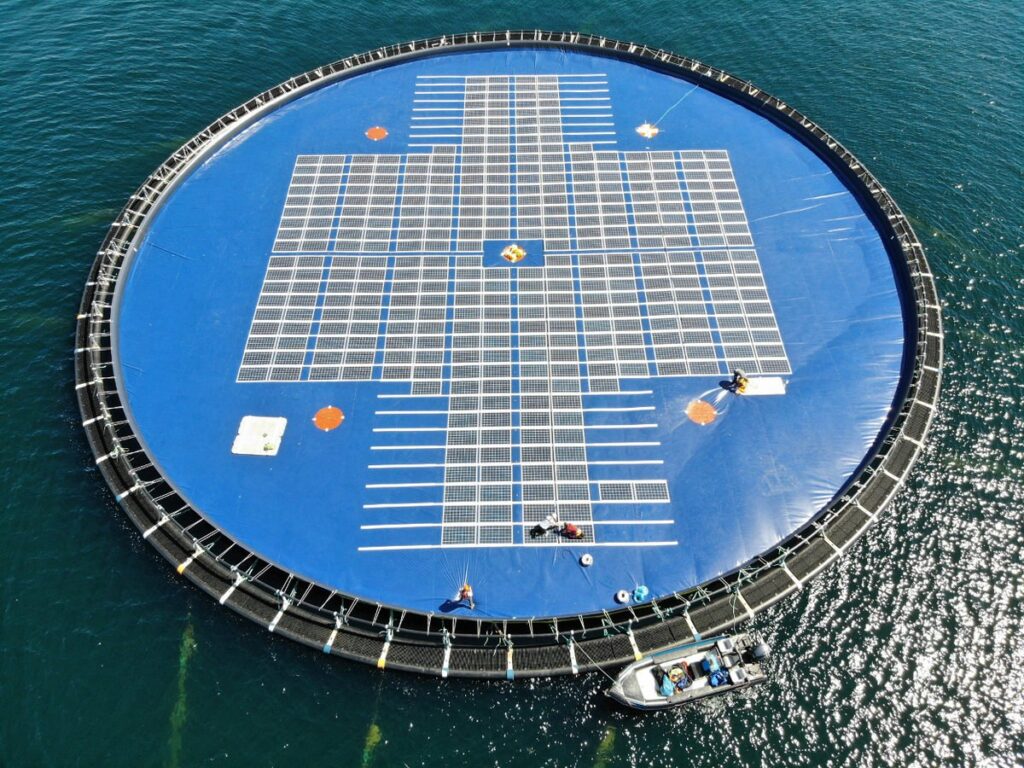
Ocean Sun, a Norwegian floating solar company, has secured NOK 4 million (approximately $359,000) from the Research Council of Norway and Brazil’s Finep agency to advance a 250 kWp floating solar pilot project near Rio de Janeiro in 2025. The project aims to develop and deploy Ocean Sun’s innovative membrane-based floating photovoltaic (PV) technology in collaboration with Brazilian partners UAPÊ Energias Solares and Sansuy S.A. Indústria de Plásticos. This partnership will allow the company to explore new fixation designs and materials engineering to enhance the performance and durability of its floating solar systems. Ocean Sun’s CEO, Kristian Tørvold, said: “This funding will enable us to push the boundaries of floating solar technology and allow us to build our first installation in South America, a strategically important market with our good partner Uapê.” The pilot project will demonstrate the viability and resilience of Ocean Sun’s membrane-based technology in Brazil’s coastal environment. This technology offers several advantages, including low material usage, simple installation, efficient water cooling, and robustness in challenging water conditions. This latest funding follows Ocean Sun’s recent acquisition of funding from Innovation Norway to advance key technology areas, including a freshwater collection system. The company has also strengthened its leadership team with…










